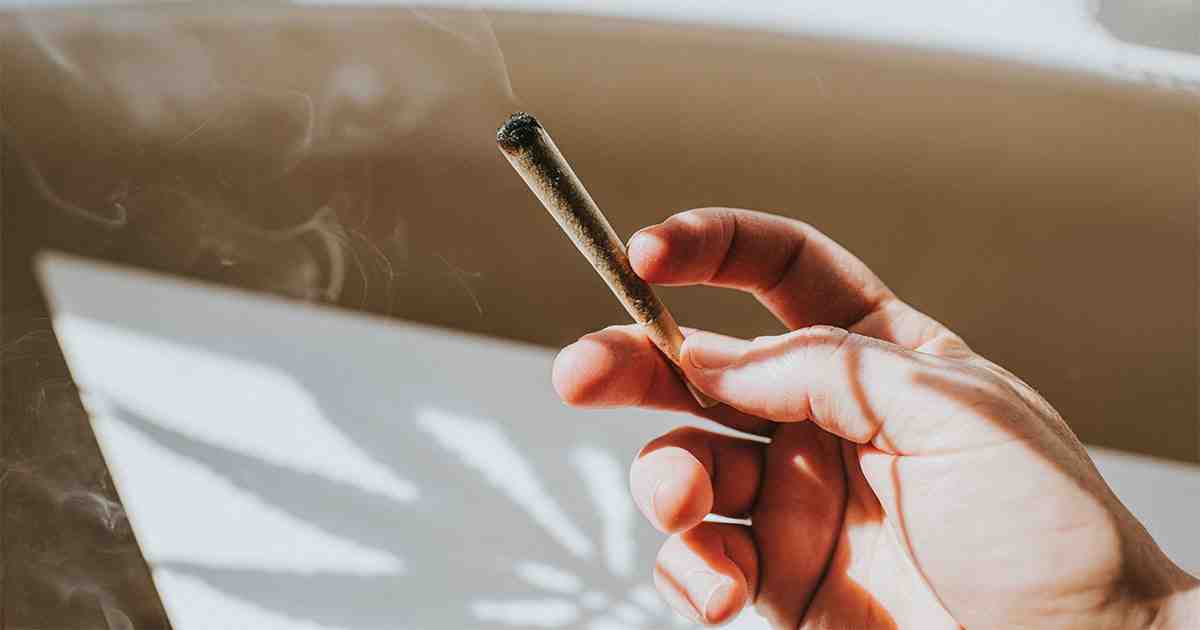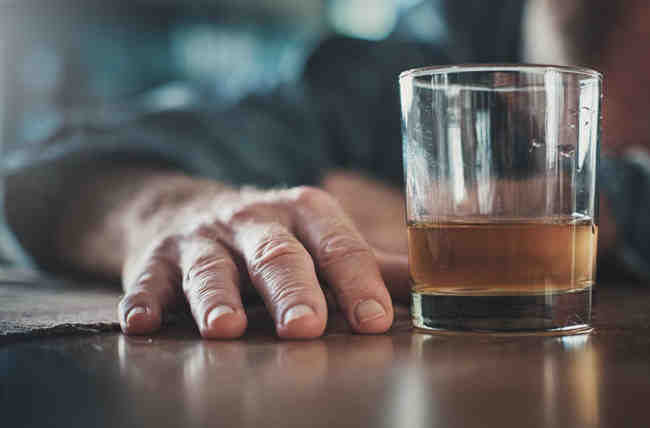Californians do a lot of things differently than other Americans, so why not be sober?
The concept of “California sober” – or “Cali sober” if you want to do that one thing – takes a swing at the idea. His followers generally abstain from alcohol and “hard” drugs, but still smoke cannabis. Some proponents, such as the author of a 2019 vice article, often cited as popularizing the term online, also take certain psychedelics.
Proponents say that by choosing some drugs over others, they could relax and expand their mind without suffering from addiction and other problems with substance abuse.
Pop star Demi Lovato was perhaps the most famous lawyer – they even wrote a song about it – but later said that “sober sober” was the only lifestyle that worked for their long-term recovery.
So in weed-friendly California, is this kind of selective sobriety a way forward for people who want to change some, but not all, of their habits?
Dr. Brian Couey, director of outpatient services at the Betty Ford Center, discussed the concept with FOX5SanDiego.com in a phone interview this week. Couey has repeatedly emphasized that each individual, their relationship to drugs and their recovery process are unique. His advice is also more targeted at people struggling with substance abuse than occasional leisure users.
In 15 years of work in the fields of mental health and addiction treatment, the clinical psychologist has seen many people take half measures on sobriety only trying to find that taking the drug completely was the best way for their health.
“For people who are really addicted, complete abstinence tends to work best,” Couey said. “‘California sobriety’ or using moderation should not produce the results a person is looking for.”
Couey said that certain drugs and other compulsive behaviors play on the same parts of our brain, and we often rely on them for the same reasons, such as dealing with stress or numbing ourselves into sadness and anxiety.
“Addiction has not so much to do with what kind of substances people use as it does with the person’s biology, their psychology and genetics,” he said. “It’s more like a person’s brain reacting to chemicals … than it is about a specific chemical they are eating.”
In short, “Addiction is really about people, it’s not about a particular drug.”
Research shows that “non-chemical” or behavioral addictions (thinking games, eating, pornography or video games) involve the same brain structures as those involved in drug use, Couey said. While each person is different, those who struggle with an addiction are statistically more likely to struggle with another.
You also do not allow your brain to heal completely if you continue to use one drug while being stopped by another that you are trying to stop, Couey said.
“If you actually have addiction – a substance use disorder – and you continue to change your brain chemistry through chemical abuse, those addictive neural pathways in your brain will not be allowed to heal and recover,” he said. “If you continue to artificially increase your dopamine levels through chemical abuse, whatever the chemical, you will likely fall into problematic behaviors.”
Again: it’s about more than the drugs themselves.
“Addiction is also about habits and rituals that enhance behavior. When much of your life is about drinking or using to feel normal, no matter what substance you use, you may struggle to facilitate growth and recovery that with adaptive handling of things comes with your own internal skills.
One last thought from Couey: The marijuana you buy today at legal dispensaries and the ways you can get high from it have changed 30 years ago, but our attitude towards how “serious” a drug can be net.
Couey said the average THC content found in available cannabis products has increased significantly, especially with guns and “dabbing” rigs for wax and other hash oil concentrates. This can increase his potential for substance abuse and for some of the psychological problems associated with substance abuse, including anxiety and depression.
“There is no hard and fast rule,” Couey said, emphasizing once again that every case he encounters is different.
But overall, the psychologist has a litany of suggestions for those who approach their addiction to alcohol or another drug – and they do not revolve around replacing it with cannabis.
“Decades of research support evidence-based practices, FDA-approved medications, feedback-informed treatment, 12-step programs, cognitive therapy,” he said, ticking the list down.
You can learn more about treatment options at the Hazelden Betty Ford Foundation website. California locations include San Diego, Los Angeles and the Palm Springs region.
Cali sober promotes the excretion of certain addictive substances and replaces them with alternatives that are in theory less harmful. Some people call California sober because they use marijuana instead of alcohol and other addictive factors.
What does sober stand for?

An alternative to this is S.O.B.E.R, which stands for stop, observe, breathe, expand and consciously respond.
What does sober mean in AA? AA’s Monomania, its abstinence fixation, actually interferes with recovery. Recovery / remission is about maintaining focus and commitment in life. The word “sober” conveys a general seriousness and purpose that a person has.
Why is it called sober?
Middle 14c., “Moderate in desire or actions, temperate, handicapped”, especially “restrained from strong drink”, also “quiet, calm, not overcome by emotions”, by alfranzian sober “decent; sober” (12c.), By Latin sobrius “not drunk, temperate, moderate, sensible”, from a variant of se- “without” (see se-) ebrius “…
How many small islands does Sri Lanka have?
Sri Lanka is considered to be the twenty-fifth island in the world by area. It has almost 30 plus islands, which are grouped in the northern and eastern stretches of the island. These small offshore islands can be reached by ferry from the nearest towns such as Jaffna in the north and Batticaloa in the east.
Why is Trincomalee famous?
Trincomalee town is home to the famous Koneswaram temple from where it developed and earned its historic Tamil name Thirukonamalai. The city is home to other historical monuments such as the Bhadrakali Amman Temple, Trincomalee, the Trincomalee Hindu Cultural Hall and, opened in 1897, the Trincomalee Hindu College.
What does sober mean in text?
The most common meaning of sober is “not drunk” – people who drive must be sober. Sober sounds a lot like gloomy, and it often means sad and quiet, or sometimes too serious. Another meaning is to be logical or realistic about something.
What is the meaning of a sober person?
1: do not drink too much: tempered. 2: just drunk. 3: have a serious attitude or show: solemnly a sober voice.
What does sober in mood mean?
calm or sedate in behavior, as persons. marked by seriousness, gravity, solemnity, etc., as by behavior, speech, etc .: a sober occasion. muted in tone, as color; not colorful or showy, like clothes. free from excess, extravagance or exaggeration: sober facts. shows self-control: sober restraint.
What does the acronym sober mean?
SOBER. Short to be fully prepared (recovery line)
What does sober in mood mean?
calm or sedate in behavior, as persons. marked by seriousness, gravity, solemnity, etc., as by behavior, speech, etc .: a sober occasion. muted in tone, as color; not colorful or showy, like clothes. free from excess, extravagance or exaggeration: sober facts. shows self-control: sober restraint.
What does it mean to go sober?
Sobriety is the state of having no measurable levels or effects of alcohol or drugs. Sobriety is also considered as the natural state of a human being at birth. A person in a state of sobriety is considered sober.
What is the sober curious movement?

In the â € œsober curiosityâ € movement, people are experimenting with sobriety for mental and physical health reasons. This also helps to break a stigma that has long been associated with sobriety, ie you do not have to be an alcoholic to be sober.
What does sober mean in psychology? Sobriety, or being sober, can be defined as the state of not being alcoholic. In the areas of addiction and mental health treatment, sobriety typically refers to a person’s decision to abstain from substance abuse. Sobriety is often, but not always, after a period of problematic use or addiction.
Why is it called sober?
Middle 14c., “Moderate in desire or actions, temperate, handicapped”, especially “restrained from strong drink”, also “quiet, calm, not overcome by emotions”, by alfranzian sober “decent; sober” (12c.), By Latin sobrius “not drunk, temperate, moderate, sensible”, from a variant of se- “without” (see se-) ebrius “…
What is the name of the island of Sri Lanka?
Serendib, also spelled Serendip, Arabic Sarandab, name for the island of Sri Lanka (Ceylon). The name, Arabic in origin, was introduced at least as early as Ad 361 and for a time gained a significant currency in the West.
Why is Trincomalee famous?
Trincomalee town is home to the famous Koneswaram temple from where it developed and earned its historic Tamil name Thirukonamalai. The city is home to other historical monuments such as the Bhadrakali Amman Temple, Trincomalee, the Trincomalee Hindu Cultural Hall and, opened in 1897, the Trincomalee Hindu College.
When did the sober curious movement start?
The Sober Curious Movement Dry January started as a public health initiative in 2012. The challenge? To start the new year with a healthy little detox – and possibly even self-reflection. The idea of a non-alcoholic month, after a period of enjoyment over the holidays, has expanded over the years.
What is the sober movement?
The sober curious movement, so to speak, is when one chooses sober for health benefits, both physical and mental, as opposed to one who is sober due to an alcohol abuse problem. In other words, people who are nocturnally curious do not consider themselves alcoholics, but still choose not to drink.
When did sober curious start?
How did the sober curious movement begin? It all started with a challenge called “Dry January” in 2014, marked by the Alcohol Concern Charity in the UK. Participants would take a month-long break from alcohol.
What is a sober person like?
An example of sober is a person who always seems to have self-control over their feelings regardless of the situation. Just drunk; not alcoholic. Do not drink too much alcohol. Moderate; realistic; serious; not playful; not passionate; cool; had controlled themselves.
How do I know if I am sober?
Use sobriety tester or a respirator. Walking in a straight line, counting backwards or touching your finger to the nose with your eyes closed are just some of the sobriety tests police use. A sober friend should be able to tell you if you are giving up or losing your balance.
What is it like being sober?
Even if sobriety feels uncomfortable at first, the recognition is temporary. Many people start to feel better over time. As you recover from addiction and make positive changes in your life, you will likely feel more confident, empowered, and proud of yourself.
What does rule 62 mean?

The Big Book of Alcoholics Anonymous discusses many steps involved in the recovery process. Rule 62 in recovery refers to the rule of “do not take yourself too damn seriously.” One in recovery does not always realize that they can enjoy their life again without the use of alcohol.
Can you be friends with your sponsor? A sponsor does not have to be a friend of a person. Whether or not a person builds a relationship with the sponsor is based more on personal compatibility than anything else. Sometimes friendship gets in the way of primary work at the completion of 12 steps. Whether friendship is appropriate depends on what arises.
Where is Rule 62 in the big book?
For those unfamiliar with AA literature, it is found in the chapter on the fourth tradition in the book Twelve Steps and Twelve Traditions. It simply says, “Do not take yourself too damn seriously”. Let us examine both the deep wisdom and the realistic perspective of this simple rule.
What are the 61 rules of AA?
61) You are not alone. 62) Wherever you go, there you are. 63) Do not drink, read the Great Book, and go to meetings ….
- Just do it.
- First things first.
- Live and let live.
- But for the grace of God.
- Think think think.
- One day at a time.
- Let go and let God.
- K.I.S.S. — Keep It Simple Domm.
What page is step 6 and 7 in the Big Book?
There is little written in the Big Book about these two steps, in fact only a short paragraph on each, found on page 76. Some people believe that “work” should be written for steps 6 and 7.
What are the 61 rules of AA?
61) You are not alone. 62) Wherever you go, there you are. 63) Do not drink, read the Great Book, and go to meetings ….
- Just do it.
- First things first.
- Live and let live.
- But for the grace of God.
- Think think think.
- One day at a time.
- Let go and let God.
- K.I.S.S. — Keep It Simple Domm.
What are the rules for AA?
The only requirement for AA membership is a desire to stop drinking. This is included in the preamble. Some members may get bloody and demanding. â € œYou have to work the steps! â € œYou have to have a sponsor, and you have to get one tonight! â €.
What do the AA believe?
AA is based on the concept of recovery from a persistent, chronic illness. It contains the philosophical elements of the belief that everyone has the potential to recover and the inherent ability to lead a satisfying, useful life.
What does the term Bleeding Deacon mean?

The bloody deacon is one who remains convinced that the group can not pass without him, who constantly stands for re-election in office, and who continues to be consumed by self-harm. Some deacons bloom so badly that they become drunk. Sometimes, A.A. Landscape seems to be with bloody shapes.
What is the message of the AA Big Book? In the four editions of the book, some of these stories have been deleted and others added, but the message is the same – the only way to fully recover from the effects of alcoholism is to practice the principles set out in the 12 Steps have been found that could lead to a “spiritual awakening” for the alcoholic.
What is tradition 2 in AA all about?
No member “directly” or “controls” the actions of the other members of the group. Tradition 2. For our group purposes, there is only one ultimate authority – a loving God as He can express himself in our group conscience. Our leaders, however, are faithful servants; they do not rule.
What does the 12th tradition mean?
Tradition twelve tells us that we must put principles before personalities. This means that we practice the principles of AA, such as honesty, humility and amendment, about personality conflicts. Personality conflicts will arise. That’s a part of life.
Why do we have traditions in AA?
Purpose of the 12 Traditions It served a dual purpose to provide a practical framework for individual chapter autonomy and to maintain unity as the purpose and message of the organization. The 12 traditions dictate how AA groups should function.
What page are the traditions on in the big book?
As per the traditions of A.A. first published, in 1946, we were assured that an A.A. Group could stand almost any amount of batter. This was the substance of A.A.’s twelve traditions, all of which appear on page 561 of this book.
What page is the 12 Traditions on in the Big Book of Alcoholics Anonymous?
Big Book ASL – Chapter 5 – How it Works Introduces the Twelve Steps – AA’s Recovery Program – and provides guidance for steps one through four.
What is the AA 12 and 12 book?
Twelve steps and twelve traditions explain the 24 basic principles of Alcoholics Anonymous. Known as “Twelve and Twelve”, the book dedicates a chapter to every step and every tradition. Chapters provide an interpretation of these principles for personal recovery and group organization.
What is a bleeding deacon?
Dictionary Definition of “bleating” deacon. a person who becomes so over-engaged in the internal management, politics or politics of a group that they lose sight of their great goals; (thus) a person with a negative, moralistic character who acts as the sole source of wisdom.
Who is a elder statesman?
Definition of senior statesman: an eminent senior member of a group or organization in particular: a retired statesman who unofficially advises current leaders.
What does a statesman person mean?
Definition of statesman 1: one who is proficient in the principles or art of government, in particular: one who is actively engaged in conducting the business of a government or shaping its policies. 2: a wise, competent and respected political leader.

